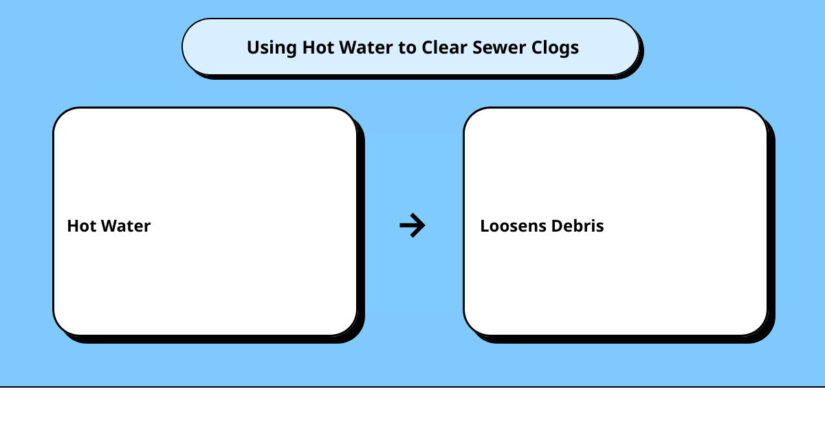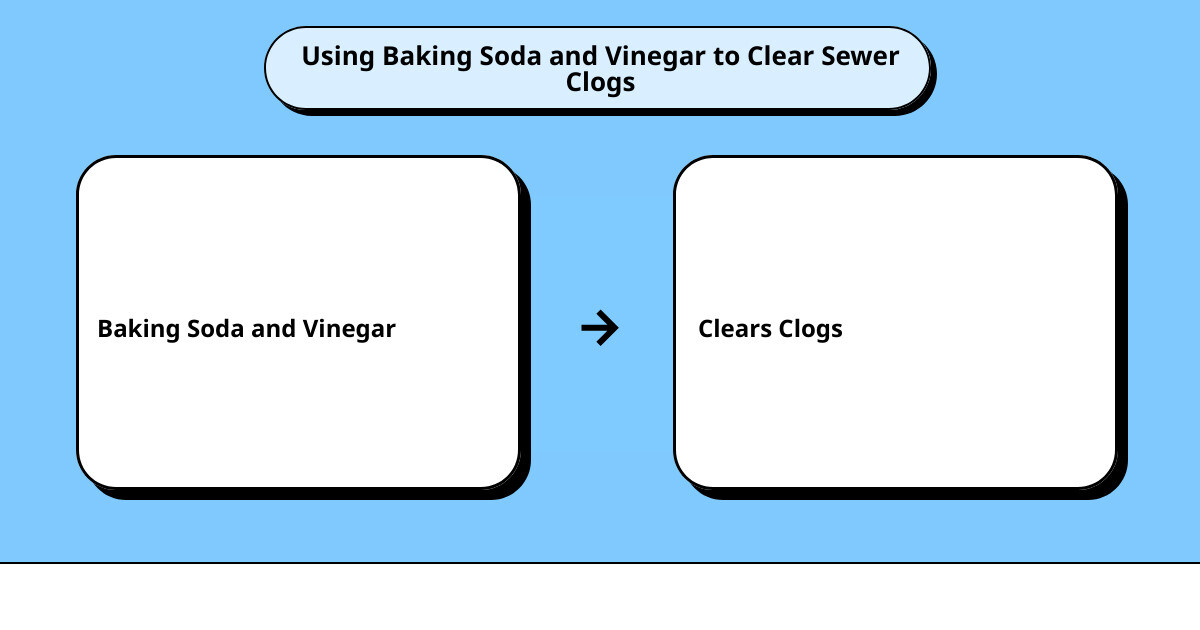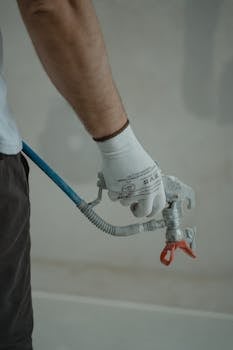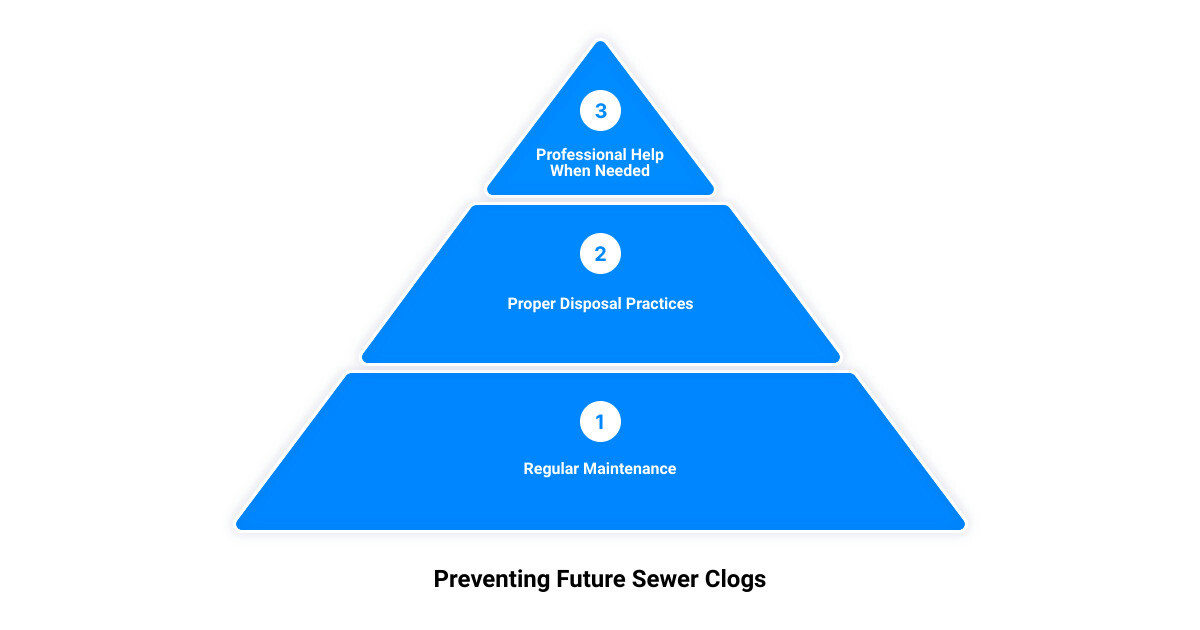5 Expert Tips to Quickly and Easily Unclog Your Sewer
By Brian on October 19, 2023

Introduction
A well-functioning sewer system isn’t just a matter of convenience—it’s an essential part of your home or business. It keeps your environment sanitary, prevents damage to your property, and ensures that your water supply remains uncontaminated—essentially, it’s the unsung hero of your property’s infrastructure. When your sewer system is working as it should, it’s easy to take for granted. But when it’s not, the consequences can be distressing and potentially hazardous. That’s where a clogged sewer comes in, one of the most troublesome plumbing issues you may encounter.
Enter Go Pro Plumbing, your trusted partner in resolving all your plumbing-related woes. Offering top-notch residential and commercial plumbing services, their team of experienced professionals are equipped to handle everything from minor leaks to major sewer line concerns. Whether you’re dealing with a stubborn clog in your main sewer line or need urgent plumbing assistance, Go Pro Plumbing’s same-day service ensures quick and efficient resolution. Stay tuned as we delve into expert tips on how to unclog your sewer system and introduce you to the exceptional services offered by Go Pro Plumbing.
Identifying a Clogged Sewer
When it comes to maintaining a healthy and functional home, early detection of plumbing issues is crucial. In particular, recognizing the signs of a clogged sewer can save you from expensive and disruptive plumbing emergencies down the line.
Common Indicators of a Clogged Sewer
Several tell-tale signs can indicate a clogged sewer in your property. One of the most straightforward indicators is slow-draining water. If you notice that water is pooling in your sinks, bathtubs, or showers and draining sluggishly, it could be a sign of a forming clog in your sewer line.
Another indicator is frequent clogs. If your drains are clogging more often than usual, it may suggest a larger blockage in your main sewer line.
Lastly, a lingering foul odor coming from your drains can be a clear sign of a severe buildup in your pipes. This can be due to accumulated food waste, grease, or other debris lodged in your sewer lines.
The Impact of a Clogged Sewer on Your Plumbing System
Ignoring the signs of a clogged sewer can lead to severe consequences for your plumbing system. A significant blockage in your main sewer line can cause extensive flooding, potentially ruining furniture, appliances, and structural elements of your property. It can also lead to mold growth, which can have severe health implications.
In commercial properties, plumbing emergencies can disrupt business operations, leading to loss of revenue and potentially damaging the business’s reputation.
The Importance of Addressing Sewer Clogs Promptly
Addressing sewer clogs promptly is crucial to prevent extensive damage to your plumbing system and maintain a healthy living and working environment. A neglected clog can escalate into a full-blown plumbing emergency, exacerbating the damage and potentially leading to costly repairs.
Whether you’re dealing with a minor clog or a major blockage, don’t hesitate to seek professional assistance. Recognizing these signs early on can save you time, stress, and money in the long run. In the next section, we will delve into expert tips to unclog your sewer line quickly and efficiently.
Expert Tip 1: Use Hot Water to Loosen Debris
Whether it’s a minor blockage or a stubborn clog, hot water can often be one of the simplest and most effective tools in your unclogging arsenal. The heat from the water can loosen up the gunk and debris that’s causing the clog, making it easier to flush it down the drain and clear your sewer line.
How Hot Water Helps Unclog a Sewer
Hot water works wonders on grease and fat, which are common culprits of sewer clogs. When these substances cool down, they solidify and stick to the insides of your pipes. Hot water can melt these substances, returning them to a liquid state and allowing them to be washed away.
Hot water also helps to break down soap scum, another frequent cause of drain clogs. Combined with the force of the water flow, hot water can dislodge blockages and clear the way for water to flow freely.
Step-by-Step Guide on Using Hot Water to Unclog a Sewer
Unclogging your sewer with hot water is a straightforward process. Here’s how:
-
Boil water: Start by filling a large pot or kettle with water and bring it to a boil.
-
Pour slowly: Carefully pour the boiling water down the drain. Do this slowly to avoid splashing or scalding yourself.
-
Wait and repeat: Allow the hot water to work its magic for several minutes. If the clog remains, you may need to repeat the process a few times.
Remember, hot water can help with minor clogs but may not be effective against more serious blockages. If you’ve tried this method and your sewer line is still clogged, it might be time to call in the professionals. Using hot water is a great first step, but sometimes a clog might require more heavy-duty methods. But don’t worry, we’ve got more expert tips coming up on other methods to unclog your sewer.
Expert Tip 2: Use a Power Washer
Have you ever thought that the same power washer you use to clean your driveway could be your secret weapon against a clogged sewer line? If the hot water trick didn’t work, it’s time to crank things up a notch.
Introduction to the Power Washer Method
A power washer, also known as a pressure washer, can be an extremely effective tool for unclogging a main sewer line. This method is particularly useful if the sewer blockage is substantial and stubborn. The power washer works by sending a high-pressure water stream down the sewer line, blasting away the clog and leaving your pipes clean and clear.
Detailed Guide on How to Use a Power Washer to Unclog a Sewer
Before you begin, locate the cleanout pipe of your home’s main sewer line. This is typically found near your home’s drainage lines or in the basement. Unscrew the cap on the cleanout pipe, but be sure to place a container underneath to catch any wastewater or sewage that might flow back.
Next, connect a sewer jetter to your power washer’s trigger gun. The sewer jetter is a type of high-pressure hose with a specialized nozzle that can effectively break up clogs in your sewer line. Carefully lower the sewer jetter into the cleanout pipe and into the sewer line until you hit the clog.
Now, you’re ready to turn on the power washer. Start with a low pressure and gradually increase it to avoid the water from running back through the sewer line. Move the jetter back and forth to help clear the clog. Continue this process until the clog is completely cleared.
Remember, safety first. Always wear protective clothing, including gloves and goggles, when using a power washer. Also, power washers can be dangerous if not used correctly, so follow all manufacturer instructions.
This method can be a game-changer in the fight against clogged sewer lines. But remember, if the clog persists even after using a power washer, it might be time for our third expert tip or to call in the professionals at Go Pro Plumbing.
Expert Tip 3: Use a Plunger
Harnessing the Power of a Plunger
Unleashing the untapped potential of a common household tool, the plunger can be your partner in crime in the battle against clogged sewer lines. But not just any plunger – a force-ball plunger is your best ally. This beast of a tool outperforms regular cup-type plungers by creating a more potent pressure within the pipe, making it a practical solution for sewer blockages.
A force-ball plunger works by creating an airtight seal with the drain. This seal generates a significant pressure that forces stubborn clogs out of the plumbing system drains. The perfect airtight seal creates additional pressure, which helps dislodge the main sewer line blockage.
Step-by-Step Guide on Using a Plunger
Now, let’s dive into the process of using a plunger to unclog your sewer line.
-
Prepare the Area: Start by ensuring you have plenty of running water in the sink, tub, or toilet bowl. This will aid in shifting the debris by loosening it from the walls of the pipe.
-
Position Your Plunger: Place the plunger over the drain opening, ensuring it creates a seal around the drain.
-
Use Force: Press and pull the plunger rapidly for about 20 to 30 seconds. The force created will help to break up the clog.
-
Check and Repeat: Lift the plunger to check if the water starts to drain. If it does, you’ve successfully unclogged your sewer line. If not, repeat the plunging process a few more times.
Remember, patience is key when using a plunger. It may take a few tries to successfully clear the clog.
Battling a clogged sewer line can be a daunting task, but with these expert tips, you’re well-equipped to tackle the problem head-on. However, if the issue persists despite your best efforts, don’t hesitate to call the professionals at Go Pro Plumbing. They’re skilled, experienced, and ready to help you regain a smoothly functioning plumbing system.

Expert Tip 4: Use Baking Soda and Vinegar
When it comes to natural, DIY solutions for unclogging your sewer, few remedies are as tried and true as baking soda and vinegar. This dynamic duo creates a fizzing reaction that can help loosen minor blockages in your drains. While it may not be potent enough to tackle a major clog, it can certainly help with smaller issues and act as a preventative measure.
How Baking Soda and Vinegar Can Help Unclog a Sewer
The real magic happens when baking soda, a base, and vinegar, an acid, combine. The chemical reaction between the two produces carbon dioxide gas, creating pressure in the drain that can help dislodge lightweight debris. This pressure, combined with the scouring effect of the baking soda, can break down and flush away minor blockages.
While it’s a relatively mild solution, using baking soda and vinegar is a safe and eco-friendly option that won’t cause any harm to your pipes, unlike some harsh chemical cleaners.
Unclogging Your Sewer with Baking Soda and Vinegar
Now, let’s break down the steps for using baking soda and vinegar to unclog your sewer. This simple process is easy to follow and requires minimal tools.
-
Pour a Cup of Baking Soda: Start by pouring one cup of baking soda down the drain. Make sure it goes down as far as possible. If necessary, use a spatula or old toothbrush to push the baking soda down the drain.
-
Add a Cup of Vinegar: Next, pour a cup of white vinegar into the drain. You’ll immediately notice the fizzing reaction as the vinegar reacts with the baking soda.
-
Wait for 15 Minutes: Allow the fizzing mixture to sit in the drain for about 15 minutes. This gives the baking soda and vinegar ample time to react and start breaking down the clog.
-
Flush with Hot Water: After 15 minutes, run hot water down the drain to wash away the baking soda, vinegar, and any dislodged debris.
Remember, this method works best for mild clogs. If you’re dealing with a persistent or severe clog, it might be time to call in the professionals at Go Pro Plumbing to ensure the issue is addressed effectively and safely.

Expert Tip 5: When to Call a Professional
As handy as DIY solutions can be for minor clogs, they’re not always enough to fully resolve the issue. If your sewer line is still not draining properly after your best efforts to unclog it, it’s time for professional intervention. Persistent blockages, frequent clogs, slow drainage and unpleasant odors are all signs that your sewer line might need a professional touch. Ignoring these signs can cause more severe and costly problems down the line.
Trying to tackle a stubborn blockage without the right expertise and tools can do more harm than good, potentially leading to further damage to your plumbing system. Moreover, a lingering foul odor coming from your drains not only creates a poor living environment but can also indicate a potential health risk. It’s essential to address these issues promptly to maintain a healthy and safe living environment.
That’s where Go Pro Plumbing comes into play. As a reputable and experienced plumbing service, Go Pro Plumbing offers a range of solutions to tackle even the most stubborn clogs. They have the expertise, tools, and knowledge to handle your drains and sewer lines effectively and efficiently. Their professionals can diagnose the underlying cause of the issue, remove the blockage, and ensure your system is clean and functioning optimally.
What sets Go Pro Plumbing apart is their same-day service. Recognizing that a clogged sewer line can be a significant inconvenience, they strive to provide prompt and efficient service to get your plumbing system back to normal as quickly as possible. This level of convenience, coupled with their outstanding customer service, makes Go Pro Plumbing an excellent choice for addressing your sewer line issues.
Remember, it’s not just about resolving the current issue. Regular drain maintenance and professional cleaning can help prevent future clogs and extend the lifespan of your drains. Go Pro Plumbing can provide this regular maintenance, offering you peace of mind and saving you from potential disruptions and costly repairs in the future.

Preventing Future Sewer Clogs
Maintaining a clear, functional sewer system doesn’t have to feel like an uphill battle. Let’s switch gears and focus on preventive measures to keep those pesky sewer clogs at bay.
Tips on How to Prevent Future Sewer Clogs
First and foremost, mind what goes down the drain. Remember, not everything is meant to be flushed or poured down the sink. Hygiene products such as sanitary pads and tampons, thick paper towels, and even certain types of toilet paper can severely clog your sewer line. The same applies to the kitchen drain; food waste, grease, and coffee grounds are notorious for creating stubborn blockages.
Use a wastebasket for anything that isn’t human waste or water to keep your sewer line clear. Adopting these simple habits can significantly reduce the risk of future clogs.
Another proactive measure is the monthly use of enzyme cleaners. These cleaners are free from harsh chemicals, making them safe for you, your family, and your pipes. They can effectively keep your sewer lines free from blockage by breaking down the organic matter that might accumulate in them.
Furthermore, be mindful of your home’s landscape. Tree roots can cause significant damage to your sewer lines. Consider removing older trees close to your sewer system or, at the very least, keep plants away from sewer lines.
Lastly, if your home has old clay or lead pipes, consider replacing them. These materials are more prone to clogs and can cause significant damage over time.
The Role of Regular Maintenance in Preventing Sewer Clogs
As with any system in your home, regular maintenance plays a crucial role in ensuring the efficiency and longevity of your sewer lines. Think of it as the oil change of your plumbing system—it keeps everything running smoothly and prevents costly issues down the line.
Routine drain cleaning is the first line of defense against clogs. It can prevent the buildup of everyday items like hair, soap, food waste, or even small objects that can disrupt the normal flow of water. Moreover, regular drain cleaning can also eliminate unpleasant odors that can emanate from your drains due to accumulated debris.
By preventing clogs and blockages, reducing odors, and ensuring the smooth operation of your plumbing system, regular drain cleaning helps protect your investment, postponing costly repairs or replacements down the line.
In conclusion, prevention is key when it comes to maintaining a clear sewer system. By adopting good habits and scheduling regular maintenance, you can enjoy a hassle-free, efficient plumbing system. Remember, if you’re ever in need, Go Pro Plumbing is just a call away for professional, reliable services.
Conclusion
Over the course of this article, we’ve armed you with five expert tips to quickly and easily unclog your sewer. From the simplicity of hot water to the force of a power washer, and the resourcefulness of a plunger, these methods can help you rectify a clogged sewer line without the need for a snake. We also introduced an eco-friendly approach, using baking soda and vinegar, which can be an effective way to handle minor blockages in your sewer line.
However, it’s crucial to remember that maintaining a clear sewer system is about more than just dealing with clogs as they occur. It’s about adopting preventative measures, such as being mindful of what you flush down the toilet and scheduling regular maintenance to keep your plumbing system in top shape. This proactive approach not only saves you time and hassle but can also prevent potential damage and costly repairs in the future.
Although DIY methods can tackle minor clogs, more significant blockages might require the expertise and specialized tools of a professional plumber. And that’s where Go Pro Plumbing steps in. Our team is equipped with the knowledge, tools, and experience to handle even the most stubborn clogs, ensuring that your sewer system is functioning efficiently and smoothly.
So the next time you’re faced with a persistent clog, remember that you don’t have to tackle it alone. Go Pro Plumbing offers same-day service for sewer unclogging, providing a prompt solution to your plumbing emergencies. Don’t let a clogged sewer disrupt your daily routine or compromise your living environment. Reach out to us, and let our professionals do the work for you. After all, there’s no substitute for expert service when it comes to maintaining a healthy plumbing system.
